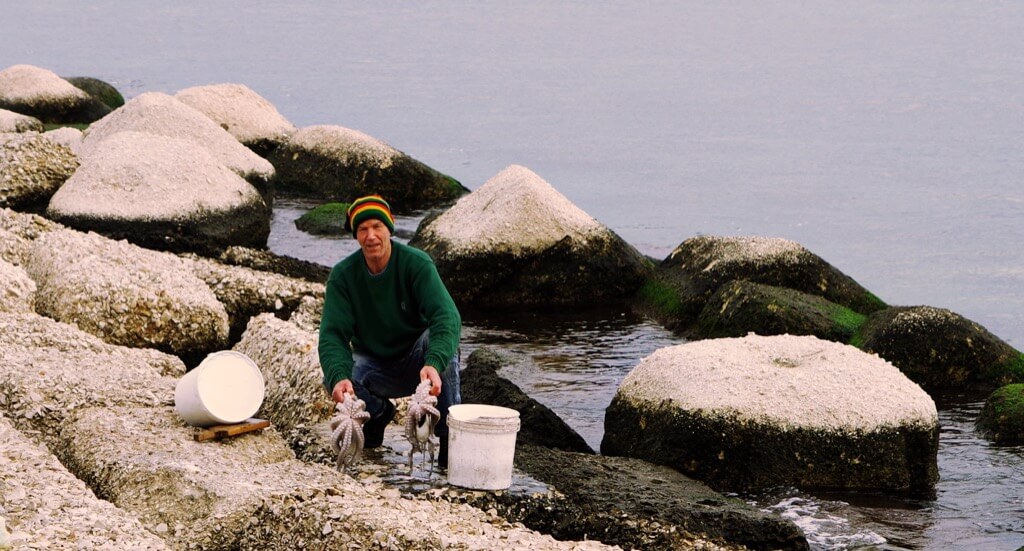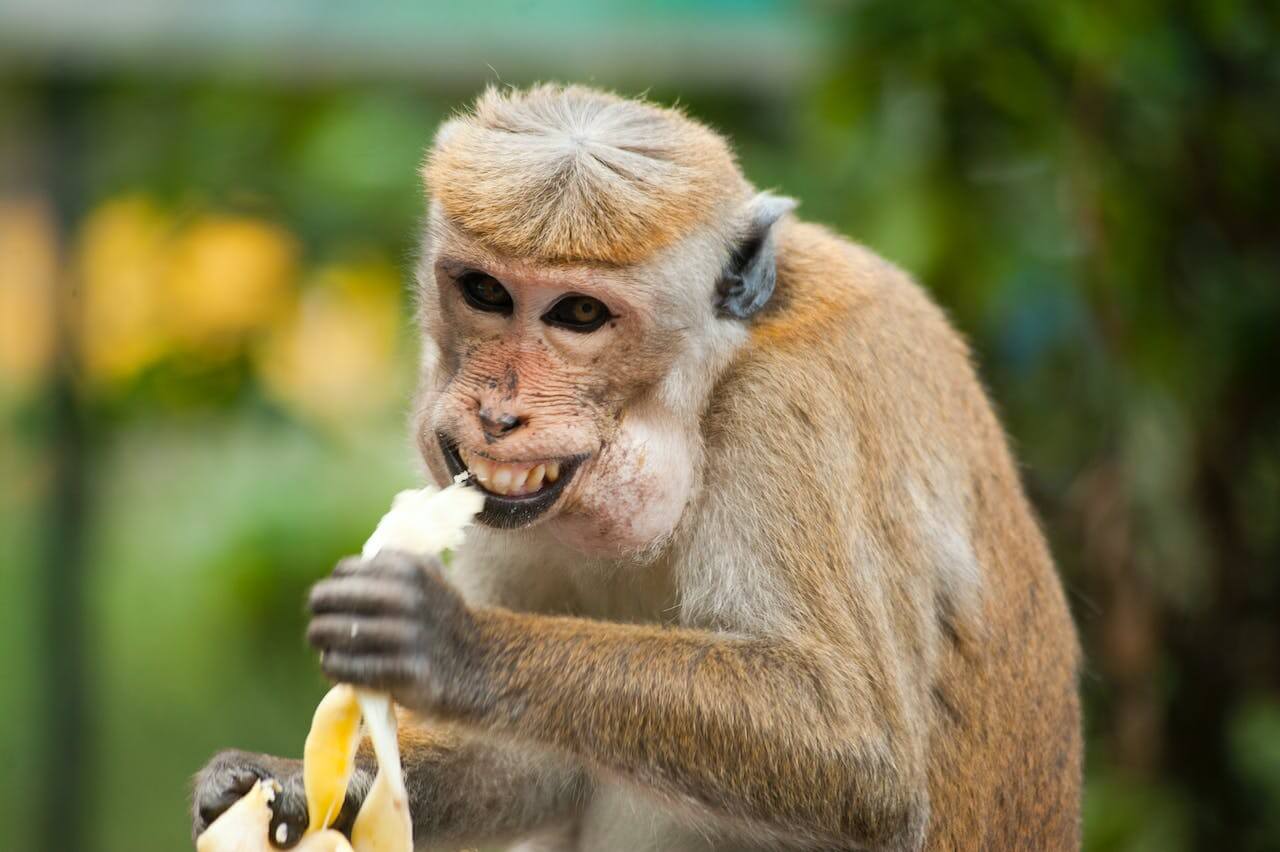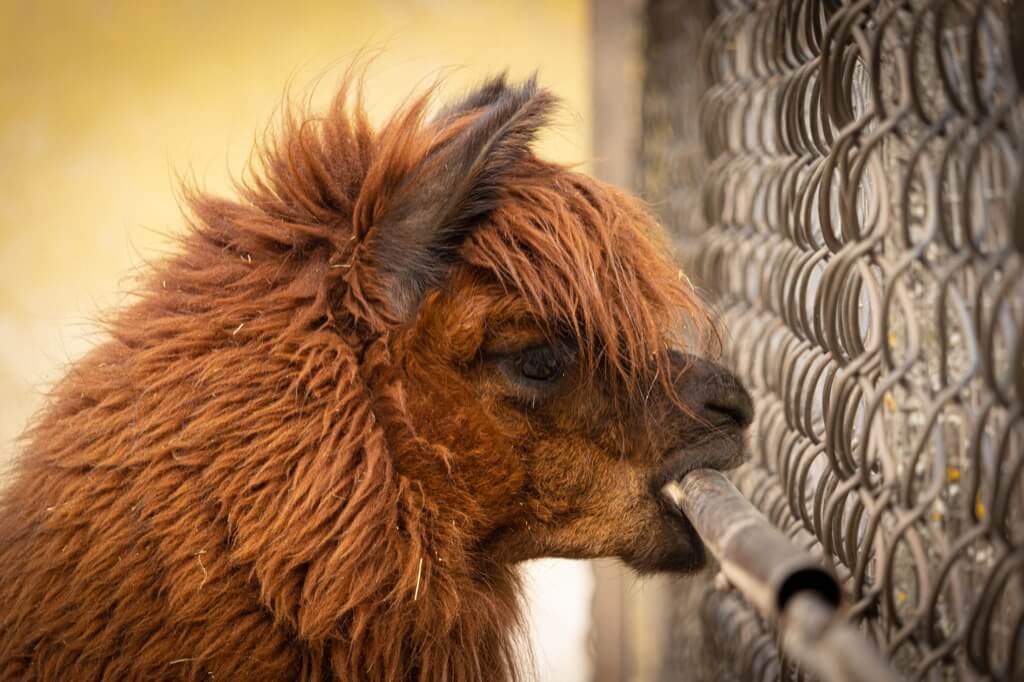In the tapestry of mid-20th-century American quirks, there nestled an intriguing trend: octopus wrestling. While it might not have gained the international spotlight like goldfish swallowing or pet rocks, this audacious sport had its moment under the sun and was appreciated by many enthusiasts.
When The Depths Were Dangerous
Once perceived as menacing deep-sea titans, octopuses evoked a sense of dread. Wrestling them became a symbol of courage and masculinity. This connection can be traced back to an evocative article in Modern Mechanix from April 1949, “Octopus Wrestling is My Hobby”. Wilmon Menard vividly recounts a South Pacific adventure where he, along with local guides, wrestled with an octopus that boasted an astonishing 25-foot tentacle span.
The strategy? Provoke the octopus to abandon its sanctuary. Once out, the octopus becomes the aggressor, wrapping its tentacles in a bid to subdue. Menard’s description of the octopus’s assault is hair-raising, detailing how the creature used its partly-severed tentacles to advance menacingly. He chillingly noted that the octopus, upon death, emitted an eerily human-like groan.
A Sport Evolves, With Heart
Fast forward a decade, the Puget Sound Mud Sharks, a Seattle-based diving club, displayed a more benevolent approach. Unlike Menard, they released their octopuses post-match or donated them to local aquaria. Their wrestling matches were organized with teams competing in scuba and free diving categories, aiming to capture the heaviest octopus.
Contrary to their daunting appearance, the octopuses captured typically spanned 7-12 feet and weighed around 50-60 pounds. After these thrilling bouts, the marine creatures were gently released back into their watery homes.
Gary Keffler, a pioneer of the sport, provided an intriguing perspective on the true “threat” of these creatures. Dissecting the myth, he affirmed that the Giant Pacific octopus, despite its size, wasn’t particularly strong and posed minimal danger to humans.
Rise and Fall of a Controversial Sport
By 1964, octopus wrestling reached its zenith, drawing over 5,000 spectators. Yet, with time, the collective perception shifted. The former “dangerous sea monsters” were now viewed as intriguing, largely harmless creatures. Jacques Cousteau’s 1971 documentary, “Octopus, Octopus”, played a pivotal role in reshaping this narrative, spotlighting the creature’s docility.
By 1976, the sport was almost extinguished, with stringent laws prohibiting any form of octopus harassment, save for specific culinary purposes. Yet, wrestling had its lingering enthusiasts. Enter Dylan Mayer, a young adventurer from 2012. Despite securing a hunting permit, Mayer’s attempt at wrestling a Giant Pacific octopus ended in controversy and public indignation, exacerbated by the viral power of social media.
The backlash was monumental, but it wasn’t without its ironies. While Mayer faced criticism, many Seattle restaurants served dishes featuring the same octopus species, raising questions about selective public outrage.
Reflection and Redemption
In response to the Mayer incident, the state established seven Octopus Protection Areas, signaling an end to the era of octopus wrestling in the region. Today, while the sport may be deemed illegal and is largely disapproved of, whispers from the diving community hint that a minuscule segment still engage in this activity, albeit in a catch-and-release fashion.
The Ethics of Human-Animal Entertainment
Throughout history, humans have engaged in sports or activities that pit man against beast. From bullfighting in Spain to bear-baiting in early modern England, these forms of entertainment have often been steeped in tradition but marred by ethical concerns. While octopus wrestling may seem less brutal on the surface than some of these older sports, it brings forth a relevant question: At what point does human entertainment justify potential harm or stress to animals? Many argue that these practices reflect a deeper lack of empathy and respect for the natural world, urging societies to evaluate and reconsider such traditions.
Aquatic Conservation and The Impact of Disturbance
Diving and interacting with marine life can have unforeseen ecological implications. Activities like octopus wrestling can disrupt natural habitats and behaviors, potentially leading to adverse effects on breeding or feeding patterns.
Besides the immediate act of wrestling, there’s also the issue of the human footprint – debris from events, potential pollution, and the sheer presence of humans in aquatic ecosystems. The debate here centers on how much interaction is too much, and whether sports like these are detrimental to marine conservation efforts.
The Role of Media in Shaping Perceptions
Jacques Cousteau’s documentary played a transformative role in altering public perception about octopuses. This phenomenon isn’t isolated. Media, especially in today’s digital age, possesses significant influence in shaping societal opinions on a vast array of issues. The portrayal of animals in media, be it the menacing shark in “Jaws” or the friendly clownfish in “Finding Nemo”, can deeply impact human-animal interactions in the real world. It begs the question: Should media be more responsible in portraying wildlife, given its profound influence on public behavior and attitudes?
Traditional Hunting vs. Modern Sensibilities
Dylan Mayer’s episode brings to light another debate. While he hunted the octopus legally and for consumption, he faced backlash primarily because of the manner in which it was done. This incident parallels the broader debate on traditional hunting methods vis-a-vis modern sensibilities.
As societies become more urbanized and distant from hunting as a means of survival, perceptions around what’s considered “humane” or “ethical” have shifted. The discourse becomes even more complex when traditions deeply rooted in indigenous cultures come under scrutiny.
Economic Implications of Banning Animal-Based Sports
There’s no denying that animal-based sports, controversial as they may be, often bring in tourism and revenue. Bullfighting in Spain, for example, has long been a tourist attraction, bringing substantial economic benefits. Similarly, places that once hosted octopus wrestling events might have relied on the influx of visitors and the surrounding festivities for income. The debate here is multifaceted: How does one balance economic benefits with ethical considerations? Should there be a transition plan in place for regions heavily reliant on such activities, and what might alternative, sustainable forms of tourism look like?
The World Octopus Wrestling Championships added structure to this bizarre activity, with points allocated based on the weight of the caught octopuses. But as narratives shifted, so did perceptions. Cousteau’s 1971 documentary, “Octopus, Octopus,” played a pivotal role in reshaping the image of octopuses from fearsome monsters to gentle giants.
Dylan Mayer’s 2012 hunting episode served as a stark reminder of the changing times. His actions, though legal, drew considerable ire, underscoring the ever-evolving societal values and the power of media in shaping perceptions. Furthermore, this incident drew attention to the juxtaposition of traditional hunting practices against modern sensibilities.
The octopus wrestling phenomenon, while short-lived, mirrored deeper societal transitions. From viewing marine life as adversaries to be conquered to recognizing them as wonders to be revered, the journey was steeped in layers of tradition, media influence, and evolving ethical standards. The tale of octopus wrestling is less about man versus beast and more about our ever-changing relationship with the natural world.




